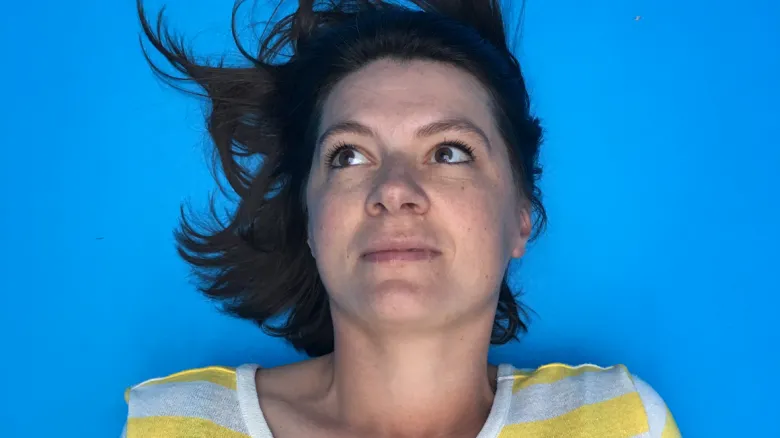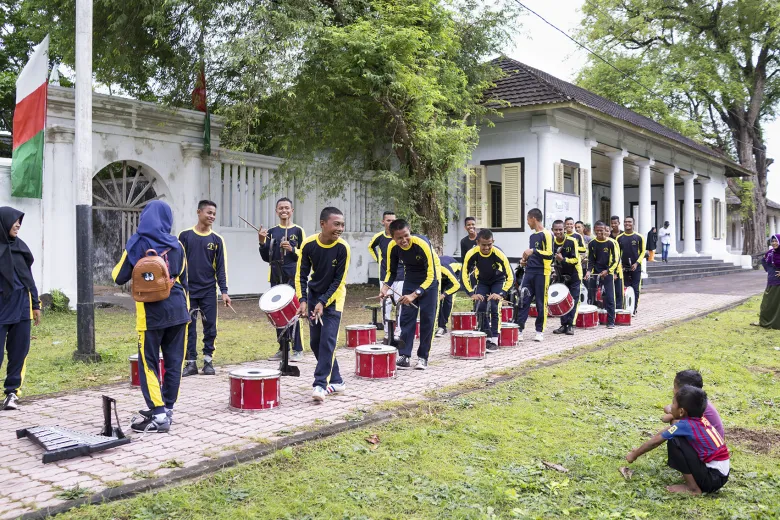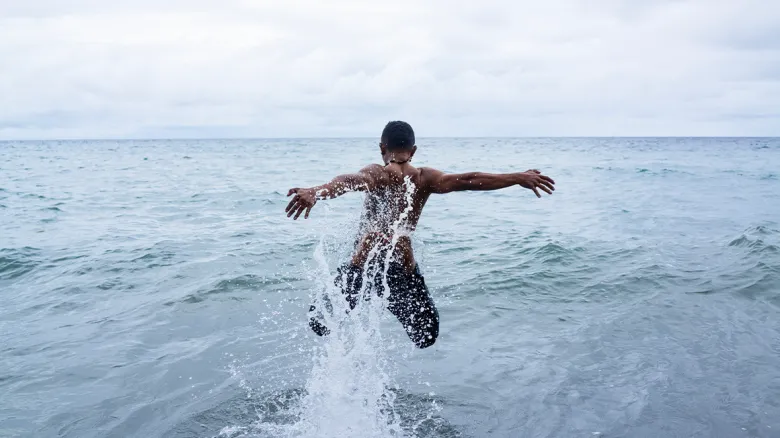The Banda islands are inextricably linked to the maritime history of the Netherlands. Starting from the question of how the turbulent past influences the present and future, Isabelle Boon photographed the youth of the islands.
Once the only place on earth where nutmeg grew, the isolated Banda islands (Moluccas, Indonesia) were of enormous value to the VOC. To this day, the Dutch presence resonates in culture and the physical landscape. How do the young people of the Banda islands look at their history? Do they want to shake off the past, or are they proud of the islands, their strong identity and heritage? Do they want to leave or stay? How do they see their future? The exhibition 'I love Banda' is an image report about identity and the universal of being young against the background of a shared past.
on being young on Banda
Documentary photographer Isabelle Boon turned her lens on today's Banda. Six young islanders - with whom she built up a special bond - play the leading role in “I love Banda,” a visual narrative that at first glance seems to be straightforward. It shows images of the personal lives of those young people, of their cultural heritage (from way before until long after Dutch rule), of the characteristics of the archipelago and of the dynamics of everyday life. On closer inspection, you will see how past and present interact and how it tells stories about culture, identity and religion. From the perspectives, dreams and ambitions of Mega Vani, Karis, Ulfa, Ode, Nabila and Nyellow, we learn to understand the Banda Islands as a place in the present time. You are invited to introspect Banda’s tumultuous history. In addition to the exhibition “I love Banda,” more than four hundred photos come together in the publication of the same name.
history of the Banda Islands
The mountainous Banda Archipelago was the only place on earth where nutmeg and mace were grown until the mid-18th century. The enormous demand for these spices made Banda an important trading center. In the early 17th century, the VOC claimed its role in the lucrative spice trade. No means was shunned to gain a monopoly. Due to "violation" of an enforced contract, the VOC sent a punitive expedition in 1621 under the leadership of Jan Pieterszoon Coen (1587-1629) to conquer Pulau Lontar (Banda Besar). His performance is regarded as the gruesome final scene of a step-by-step conquest of the Banda archipelago by the VOC. The Dutch regarded the islands as their own territory after the bloody conquest and introduced a systematic cultivation of nutmeg trees with perken (plantations), perkeniers (supervisors) and forced labor. To this day, the Dutch colonial presence resonates in the culture and landscape of the islands.

commemoration 400 years Banda
This year, The National Maritime Museum commemorates in various ways the violent conquest of the Banda Islands by J.P. Coen 400 years ago and the relevant, interconnected history between the Netherlands and the Banda archipelago.

Isabelle Boon
Who is Isabelle Boon? What's her starting point? Discover everything about the maker of I love Banda.

history of the Banda Islands
The Banda Islands were an important trading centre until the mid-18th century for the VOC, the Dutch East India Company.

], [/sites/default/files/styles/carousel/public/2019-11/1.%20I_love_Banda_Diana_Isabelle_Boon.jpg.webp, (large)])
], [/sites/default/files/styles/carousel/public/2019-11/2.%20I_love_Banda_fanfare_Isabelle_Boon.jpg.webp, (large)])
], [/sites/default/files/styles/carousel/public/2019-11/3.%20I_love_Banda_Fort_Waer_Isabelle_Boon.jpg.webp, (large)])